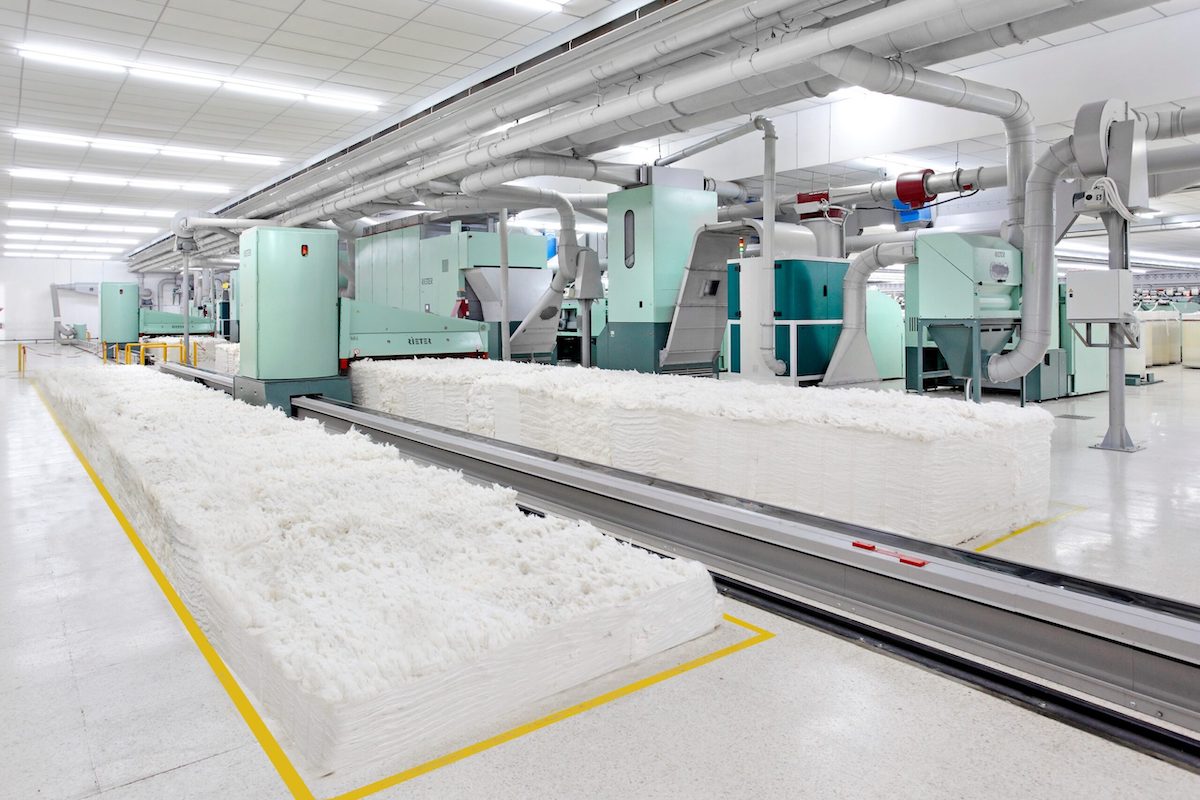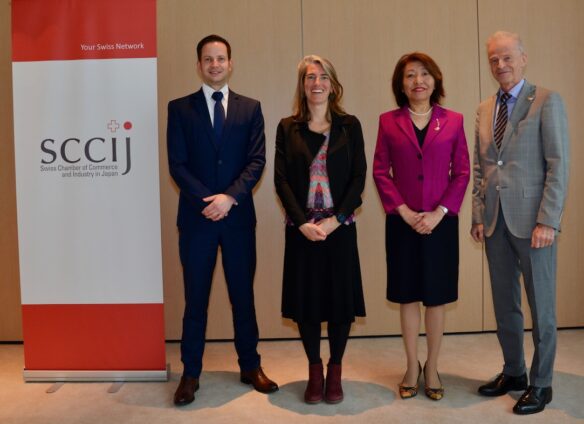Tokyo (SCCIJ) – The Swiss young company Haelixa has invented a unique technology to map textile supply chains and introduce physical traceability solutions with forensic accuracy. A sprayed genetic marker helps producers and retailers to comply with stricter regulations and prove the qualities and origins of textiles. A growing number of consumers are demanding such proof.

The DNA spray of Haelixa is applied on cotton at a spinning mill of Swiss machine maker Rieter (© Rieter).
Forgery-proof marking
The cells of all animals and humans contain an individual genetic code encrypted in unique DNA. Inmate things, such as processed food or textiles, can be enriched with an external DNA marker to help identify them in a forgery-proof way.
The Swiss start-up Haelixa has recognized a business opportunity in this technology because more and more consumers want to know how and where their clothes were made. And regulators are demanding that companies protect the environment and human rights along their entire value chains. This year, the European Commission adopted corresponding due diligence requirements.
Detection with PCR test
Haelixa, a six-year-old spin-off from the Swiss Federal Institute of Technology Zurich, offers a traceability solution based on a revolutionary and patented DNA technology for full textile supply chain transparency from source to retail. The company developed a unique marker that is applied directly to the fiber, which allows it to identify either a brand, a supplier, a production lot, or a producer. The marker is harmless for humans and the environment, Oekotex 100 compliant, and Global Organic Textile Standard (GOTS) certified, yet strong enough to withstand all industrial processing.
The innovative idea is that an artificial DNA is created for each origin, brand, processing, or other property of raw material and that this information remains inseparably linked to the material throughout the value chain. 100 milliliters of Haelixa’s concentrated DNA marker liquid are enough to spray around 10 tons of cotton. Still, the marker is stable enough to survive all the steps of industrial production.
Third-party PCR test
However, the promised quality of the end product cannot be recognized at first glance. Proof requires a PCR test, the same type of genetic test that confirms the presence of the coronavirus. The DNA can be extracted from the product without destroying it.
The Haelixa laboratories carry out the necessary test. Therefore, the company always sells the tests together with the marker as a complete package. The idea behind this is that a third-party test is more credible, especially for regulators than a test of the producer or retailer.
Cooperation with Rieter
The company based near Kemptthal between Zurich and Winterthur is not only targeting clothing brands but also manufacturers at the very beginning of the value chain. This year, for example, the company entered into a strategic partnership with textile machinery manufacturer Rieter, the world’s leading supplier of systems for short-staple fiber spinning.
Combining Rieter’s expertise in processing short-staple fibers with Haelixa’s solution creates more transparent and resilient supply chains with a solution that seamlessly integrates into existing equipment. Haelixa and Rieter have already completed joint in-house testing and validation, resulting in the launch of an automated application of the marker in Rieter spinning systems in liquid form.
Text: Martin Fritz for SCCIJ, partly with the material of Haelixa





























